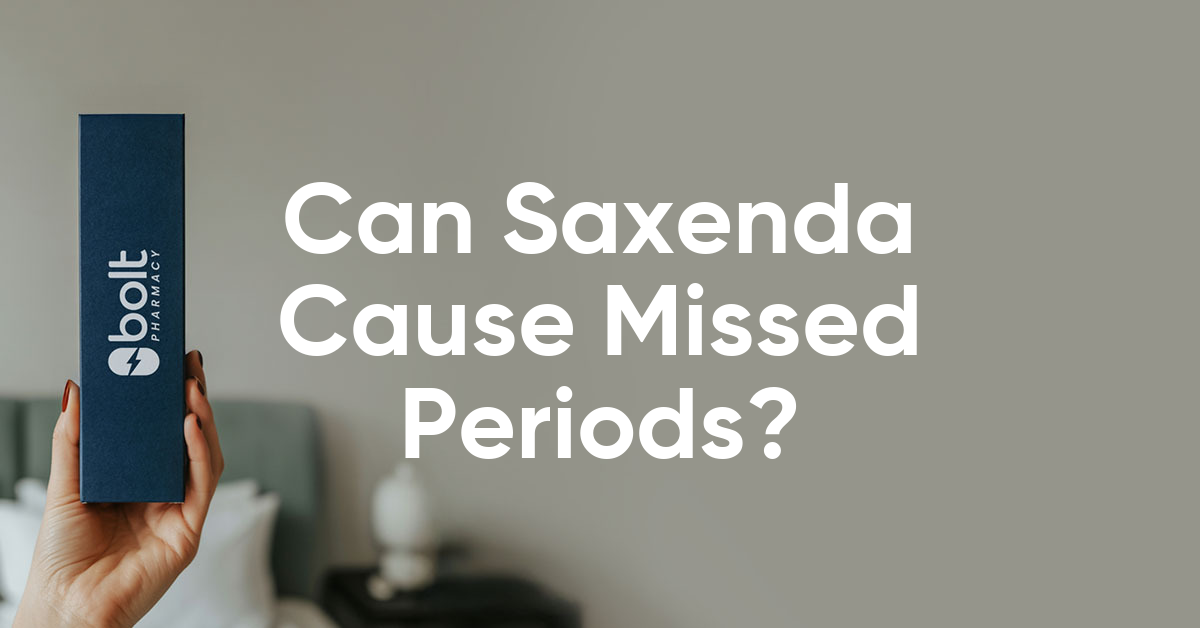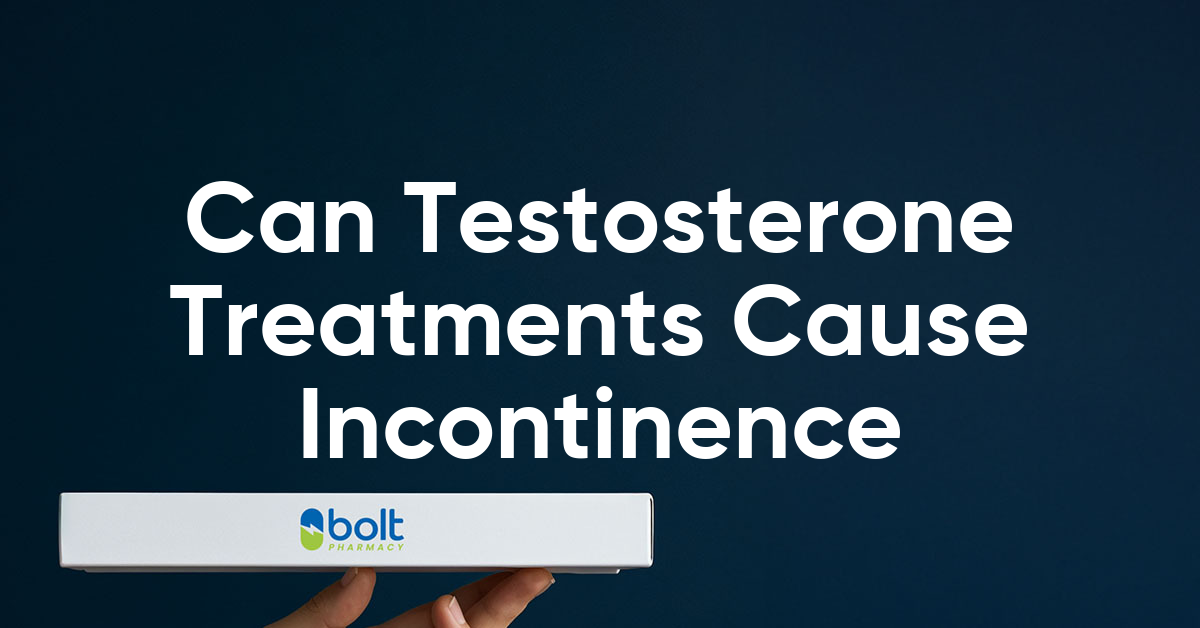Can Saxenda cause missed periods? Saxenda (liraglutide 3.0 mg) is a GLP-1 receptor agonist licensed by the MHRA for chronic weight management in adults with obesity or overweight with weight-related comorbidities. Whilst menstrual irregularities are not listed as a common side effect in UK prescribing information, some women report cycle changes during treatment. The relationship between Saxenda and missed periods is likely indirect, mediated through weight loss rather than direct hormonal interference. Rapid or significant weight reduction can disrupt the hypothalamic-pituitary-ovarian axis, affecting menstrual regularity. Understanding this connection helps distinguish medication effects from weight-loss-related changes.
Summary: Saxenda does not directly cause missed periods, but the weight loss it produces may indirectly disrupt menstrual cycles through effects on the hypothalamic-pituitary-ovarian axis.
- Saxenda (liraglutide 3.0 mg) is a GLP-1 receptor agonist licensed by the MHRA for chronic weight management in adults with obesity.
- Rapid or significant weight loss can suppress reproductive hormones, leading to functional hypothalamic amenorrhoea and missed periods.
- Women with obesity-related conditions such as PCOS may experience improved menstrual regularity with weight loss.
- Pregnancy must be excluded if periods are missed, as Saxenda is contraindicated in pregnancy and should be stopped immediately if conception occurs.
- Contact your GP if you miss three consecutive periods or experience concerning symptoms such as severe abdominal pain or abnormal bleeding.
- Report suspected side effects through the MHRA Yellow Card scheme and discuss menstrual changes with your prescriber during regular monitoring appointments.
Table of Contents
Can Saxenda Cause Missed Periods?
Saxenda (liraglutide 3.0 mg) does not list menstrual irregularities as a common side effect in its official UK prescribing information, yet some women report changes to their menstrual cycle whilst taking this medication. There is no established mechanism in humans by which liraglutide—a glucagon-like peptide-1 (GLP-1) receptor agonist—would directly interfere with the hypothalamic-pituitary-ovarian axis that regulates menstruation.
However, the indirect effects of Saxenda warrant consideration. As a weight-loss medication licensed by the MHRA for chronic weight management, Saxenda works by mimicking the naturally occurring hormone GLP-1, which regulates appetite and food intake. It slows gastric emptying, increases feelings of fullness, and reduces hunger signals in the brain. These mechanisms lead to reduced caloric intake and subsequent weight loss, which can itself influence menstrual regularity.
The relationship between Saxenda and missed periods is therefore likely mediated through weight changes rather than direct hormonal interference. Rapid or significant weight loss—regardless of the method—can disrupt normal menstrual function. Additionally, gastrointestinal side effects such as nausea, vomiting, and reduced nutritional intake may contribute to metabolic stress that affects reproductive hormones.
It is important to note that many women starting Saxenda may already have conditions affecting their periods, such as polycystic ovary syndrome (PCOS), which is commonly associated with obesity. Weight loss in these individuals may actually improve menstrual regularity over time. If you experience missed periods whilst taking Saxenda, it is essential to consider the broader context of your health, weight changes, and any pre-existing conditions rather than attributing the change solely to the medication.
Note that other serious side effects of Saxenda, such as pancreatitis or gallbladder disease, are unrelated to missed periods but may cause abdominal pain requiring urgent medical assessment.
Weight Loss and Menstrual Changes: The Connection
Weight loss—particularly when rapid or substantial—is a well-recognised cause of menstrual disturbances, including missed periods (amenorrhoea), irregular cycles, or lighter bleeding. The reproductive system is highly sensitive to energy availability, and significant caloric restriction or weight reduction can signal to the body that conditions are not optimal for reproduction.
The hypothalamic-pituitary-ovarian axis regulates the menstrual cycle through a complex interplay of hormones including gonadotrophin-releasing hormone (GnRH), follicle-stimulating hormone (FSH), luteinising hormone (LH), oestrogen, and progesterone. When the body perceives energy deficit—whether through reduced food intake, increased exercise, or rapid weight loss—it may suppress GnRH secretion. This suppression cascades down the hormonal pathway, reducing FSH and LH production, which in turn decreases ovarian hormone output and can halt ovulation and menstruation. This condition is known as functional hypothalamic amenorrhoea (FHA).
Research indicates that weight loss can affect menstrual function in some women, though individual susceptibility varies considerably. The risk depends on energy availability, rate of weight loss, and baseline body composition. Women with lower body fat percentages or those who lose weight rapidly are at higher risk. The body requires a certain level of adipose tissue to maintain normal reproductive function, as fat cells produce leptin—a hormone that signals energy sufficiency to the brain's reproductive centres.
Conversely, for women with obesity-related menstrual irregularities, weight loss may actually restore normal cycles. Conditions such as PCOS often improve with weight reduction, as decreased insulin resistance and reduced androgen levels can re-establish regular ovulation. Therefore, the effect of Saxenda-induced weight loss on menstruation may be beneficial or disruptive depending on your starting weight, rate of loss, and underlying reproductive health. Menstrual patterns may stabilise once weight loss plateaus and the body adapts to its new metabolic state, though this varies between individuals.

When to Seek Medical Advice About Missed Periods on Saxenda
You should contact your GP if you miss three periods in a row, or sooner if you have concerns whilst taking Saxenda. While weight loss may explain menstrual changes, it is essential to exclude other causes, including pregnancy, which remains possible during treatment.
Pregnancy testing is the first priority when periods are missed. Saxenda is contraindicated in pregnancy and should be discontinued if you are planning pregnancy or if pregnancy occurs. If you are sexually active and miss a period, take a pregnancy test regardless of contraceptive use, as no method is 100% effective. If positive, stop Saxenda immediately and contact your healthcare provider.
Seek prompt medical attention if missed periods are accompanied by:
-
Severe, persistent upper abdominal pain (especially if radiating to the back), with or without vomiting, which could indicate pancreatitis
-
Right upper abdominal pain, fever or jaundice, which might suggest gallbladder disease
-
Abnormal vaginal bleeding or discharge
-
Signs of pregnancy (nausea, breast tenderness, fatigue)
-
Symptoms of hormonal imbalance (excessive hair growth, acne, voice changes)
-
Significant unintended weight loss beyond your target
-
Signs of malnutrition (hair loss, brittle nails, extreme fatigue)
-
Hot flushes or night sweats suggesting premature ovarian insufficiency
Your GP may recommend investigations including pregnancy testing, hormonal blood tests (FSH, LH, oestradiol, prolactin, thyroid function), and possibly pelvic ultrasound to assess ovarian and uterine health. These tests help distinguish between weight-loss-related amenorrhoea and other conditions requiring specific treatment.
NICE guidance on obesity management recommends regular monitoring of patients on weight-loss medications for adverse effects. Your prescriber should review your progress regularly, and any significant menstrual changes warrant discussion during these appointments. Do not simply assume missed periods are a normal consequence of treatment—proper evaluation ensures your reproductive health is protected whilst you pursue your weight management goals.
If you suspect your missed periods are a side effect of Saxenda, you can report this through the MHRA Yellow Card scheme.
Other Factors That May Affect Your Period While Taking Saxenda
Multiple factors beyond Saxenda itself may contribute to menstrual irregularities during treatment, and it is important to consider the broader context of your health and lifestyle when evaluating cycle changes.
Stress and lifestyle changes often accompany weight-loss efforts. Starting a new medication, modifying your diet significantly, and adjusting to new eating patterns can create physiological and psychological stress. The hypothalamic-pituitary-adrenal (HPA) axis responds to stress by releasing cortisol, which can suppress reproductive hormone production. Additionally, if you have increased physical activity as part of your weight management programme, excessive exercise combined with caloric restriction may contribute to hypothalamic amenorrhoea.
Nutritional deficiencies may develop if weight loss is too rapid or dietary intake becomes overly restricted. Saxenda's appetite-suppressing effects, combined with gastrointestinal side effects such as nausea, may lead some individuals to consume inadequate calories or miss essential nutrients. Ensuring a balanced, nutrient-dense diet despite reduced appetite is crucial for maintaining reproductive health.
Pre-existing conditions such as PCOS, thyroid disorders, hyperprolactinaemia, or premature ovarian insufficiency may become more apparent or be exacerbated during weight loss. Some women discover underlying reproductive conditions only when menstrual patterns change during treatment. Conversely, conditions like PCOS may improve with weight loss, potentially restoring regular cycles after an initial period of irregularity.
Medication considerations should also be noted. While Saxenda is not expected to have clinically relevant interactions with combined oral contraceptives, the gastrointestinal side effects of Saxenda (vomiting or severe diarrhoea) could potentially reduce contraceptive effectiveness. If you experience these symptoms, follow the standard 'missed pill' guidance in your contraceptive's patient information leaflet.
Age is another relevant factor. Women in their late thirties and forties may be approaching perimenopause, when menstrual irregularities naturally increase. Weight loss and metabolic changes during this transitional period may compound normal age-related cycle variability. Maintaining open communication with your healthcare provider about all aspects of your health ensures that menstrual changes are properly evaluated and managed, whether they relate to Saxenda, weight loss, or other underlying factors requiring attention.
Frequently Asked Questions
Does Saxenda directly affect menstrual hormones?
No, Saxenda (liraglutide) does not directly interfere with the hypothalamic-pituitary-ovarian axis. Any menstrual changes are likely indirect effects of weight loss rather than direct hormonal disruption by the medication itself.
Should I take a pregnancy test if I miss a period on Saxenda?
Yes, pregnancy testing is essential if you miss a period whilst taking Saxenda. The medication is contraindicated in pregnancy and must be stopped immediately if you conceive, so exclude pregnancy before attributing missed periods to weight loss alone.
Will my periods return to normal after weight loss stabilises?
Menstrual patterns often stabilise once weight loss plateaus and the body adapts to its new metabolic state, though individual responses vary. If periods do not resume after three months of stable weight, consult your GP for hormonal assessment.
The health-related content published on this site is based on credible scientific sources and is periodically reviewed to ensure accuracy and relevance. Although we aim to reflect the most current medical knowledge, the material is meant for general education and awareness only.
The information on this site is not a substitute for professional medical advice. For any health concerns, please speak with a qualified medical professional. By using this information, you acknowledge responsibility for any decisions made and understand we are not liable for any consequences that may result.
Heading 1
Heading 2
Heading 3
Heading 4
Heading 5
Heading 6
Lorem ipsum dolor sit amet, consectetur adipiscing elit, sed do eiusmod tempor incididunt ut labore et dolore magna aliqua. Ut enim ad minim veniam, quis nostrud exercitation ullamco laboris nisi ut aliquip ex ea commodo consequat. Duis aute irure dolor in reprehenderit in voluptate velit esse cillum dolore eu fugiat nulla pariatur.
Block quote
Ordered list
- Item 1
- Item 2
- Item 3
Unordered list
- Item A
- Item B
- Item C
Bold text
Emphasis
Superscript
Subscript










